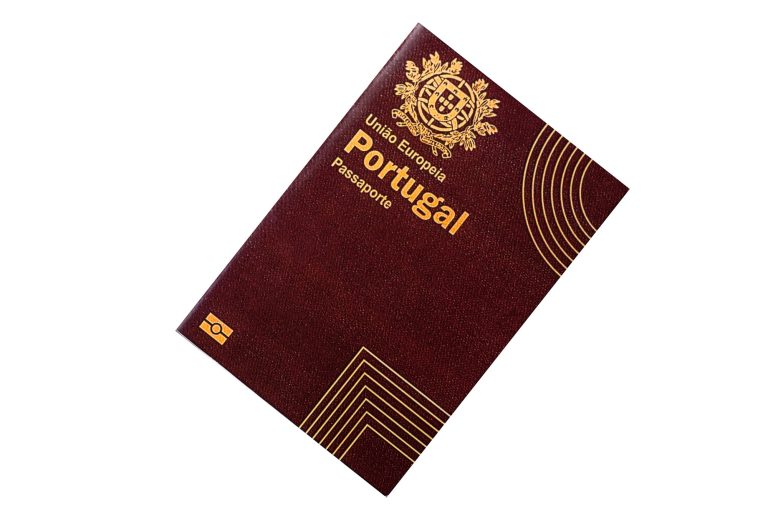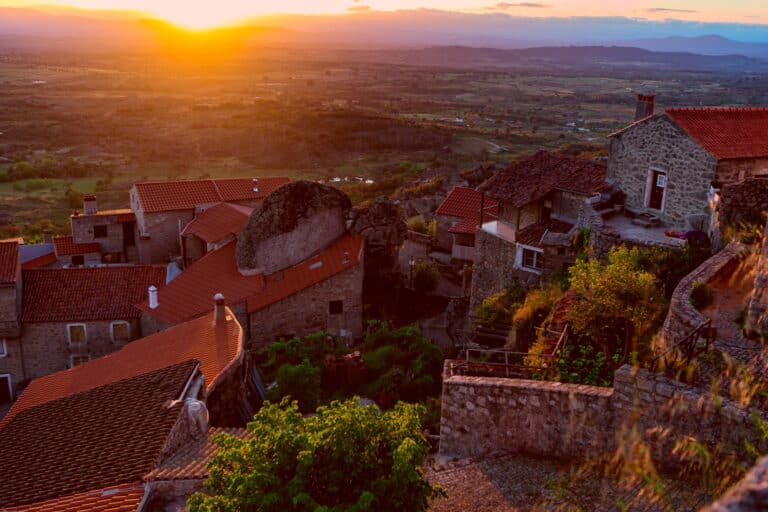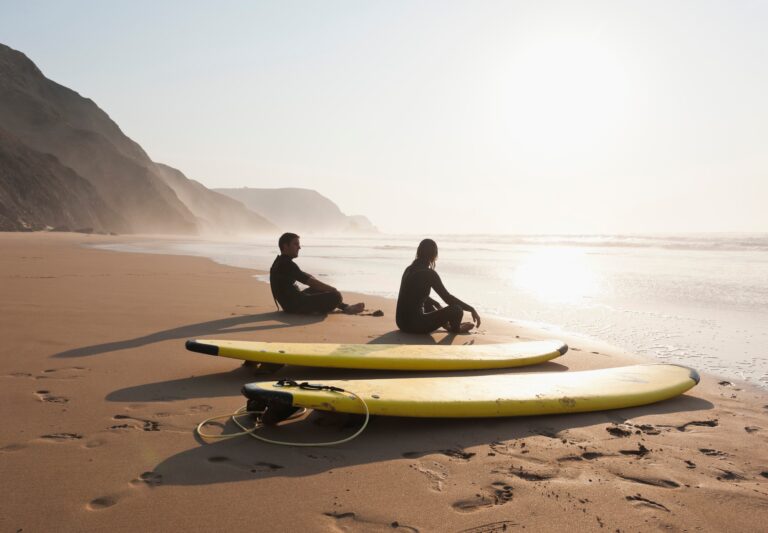Portugal Climate Guide for Expats: Complete Weather Overview and Regional Variations
Moving to Portugal? Understanding the country’s diverse climate zones is crucial for choosing your ideal location and preparing for year-round living. This comprehensive guide explores Portugal’s weather patterns, regional variations, and what expats can expect throughout the seasons.
Understanding Portugal’s Mediterranean Climate System
Portugal’s location in southwestern Europe places it in a privileged position weather-wise, offering what many consider the perfect balance between seasonal variety and mild temperatures. The country experiences a predominantly Mediterranean climate influenced by four major air masses that shape its weather patterns throughout the year.
The Portuguese Institute for the Sea and Atmosphere (IPMA) reports that mainland Portugal maintains an average annual minimum temperature of 10°C (50°F) and an average maximum of 21°C (70°F). These comfortable averages make Portugal particularly attractive for expats seeking to escape extreme weather conditions in their home countries.
The Four Air Masses Influencing Portuguese Weather:
- Polar Sea Air Mass: Brings cold, humid conditions primarily during winter months
- Continental Polar Air Mass: Delivers cold, dry weather patterns
- Continental Tropical Air Mass: Creates warm, dry conditions typical of summer
- Tropical Sea Air Mass: Generates warm, humid weather patterns
These atmospheric influences combine with geographical factors including latitude, altitude, and proximity to the Atlantic Ocean to create Portugal’s diverse microclimates. For expats planning their move through Access Portugal’s visa services, understanding these climate variations helps inform crucial decisions about where to settle.
The Atlantic Ocean plays a particularly significant role in moderating temperatures along the coast, preventing extreme heat in summer and harsh cold in winter. This maritime influence extends approximately 40 kilometers inland, creating distinct weather patterns between coastal and interior regions.
Four Distinct Climate Zones Across Mainland Portugal
Portugal’s geographical diversity creates four primary climate zones, each offering unique living conditions for expats. Understanding these regional differences is essential when choosing your Portuguese home base.
Northern Coast: Maritime Mediterranean Climate
The northern coastal region, including cities like Porto and Viana do Castelo, experiences a Mediterranean climate with strong maritime influence. This zone is characterized by:
- Minimal annual temperature variations
- Warm but not excessively hot summers (average 25°C/77°F)
- Mild winters rarely dropping below 5°C (41°F)
- High humidity levels throughout the year
- Substantial rainfall, particularly from October to March
For expats who appreciate green landscapes and don’t mind occasional rain, the northern coast offers comfortable year-round temperatures. The region’s climate supports lush vegetation and beautiful gardens, making it ideal for those who enjoy outdoor activities without extreme heat.
Northern Interior: Continental Mediterranean Climate
Moving inland from the coast, the climate becomes more continental, with locations like Bragança and Vila Real experiencing:
- Significant temperature variations between seasons
- Hot, dry summers reaching 35°C (95°F) or higher
- Cold winters with temperatures occasionally below freezing
- Lower annual rainfall compared to coastal areas
- Occasional snowfall in winter months
This region suits expats who enjoy distinct seasons and don’t mind temperature extremes. The dramatic seasonal changes create stunning landscapes throughout the year, from snow-capped mountains in winter to golden fields in summer.
Mountain Regions: Alpine Climate Characteristics
Portugal’s mountainous areas, including Serra da Estrela and Serra do Gerês, feature unique alpine climates:
- Cool, humid summers with average temperatures around 20°C (68°F)
- Harsh winters with regular snowfall
- High precipitation levels throughout the year
- Significant temperature drops with altitude increases
These regions attract expats seeking cooler climates and winter sports opportunities. Access Portugal’s relocation services can help you explore mountain properties and understand the specific requirements for living in these areas.
Southern Portugal: Classic Mediterranean Climate 🌞
The Alentejo and Algarve regions embody the quintessential Mediterranean climate that attracts thousands of expats annually:
- Long, hot summers with temperatures often exceeding 30°C (86°F)
- Mild, relatively dry winters averaging 15°C (59°F)
- Extended dry periods lasting 5-6 months
- Minimal rainfall concentrated in winter months
- Over 3,000 hours of sunshine annually in the Algarve
This climate zone is perfect for sun-seekers and those looking to escape cold winters. The consistent sunshine and warm temperatures support an outdoor lifestyle year-round, making it particularly popular among retirees applying for the D7 visa.
Seasonal Weather Patterns: What to Expect Year-Round
Understanding Portugal’s seasonal variations helps expats prepare for their new life and plan activities throughout the year. Each season brings distinct characteristics that influence daily life, from clothing choices to energy costs.
Spring (March to May): Nature’s Awakening
Spring in Portugal marks a delightful transition period characterized by:
Temperature ranges: 15-22°C (59-72°F) on average Rainfall: Moderate, decreasing as summer approaches Sunshine hours: Gradually increasing from 6 to 8 hours daily Regional variations: Earlier warming in the south, extended cool periods in mountain areas
Spring represents an ideal time for expats to explore their new country. The comfortable temperatures and blooming landscapes create perfect conditions for house hunting, with Access Portugal’s real estate guidance proving invaluable during this process. Popular spring destinations include the Sintra hills, where lush vegetation reaches its peak beauty.
The season brings particular advantages for those establishing gardens or renovating properties. Mild temperatures and adequate rainfall support plant growth while allowing comfortable working conditions for outdoor projects.
Summer (June to August): Mediterranean at Its Best
Portuguese summers deliver the warm, dry conditions that define Mediterranean living:
Temperature ranges: 25-35°C (77-95°F), with interior regions reaching 40°C (104°F) Rainfall: Minimal to none, particularly in southern regions Sunshine hours: 10-12 hours daily Regional variations: Coastal areas benefit from cooling Atlantic breezes
Summer transforms Portugal into a vibrant outdoor paradise. Coastal regions experience the famous “nortada” wind, providing natural air conditioning along the western shores. This makes beach towns particularly attractive for expats seeking relief from interior heat.
The extended daylight and reliable weather support numerous festivals and cultural events. Expats quickly adapt to the Portuguese summer rhythm, which includes afternoon siestas in hotter regions and late evening socializing when temperatures cool. Those pursuing entrepreneurial ventures through the D2 visa find summer’s tourist influx creates excellent business opportunities.
Autumn (September to November): Harvest Season Beauty
Autumn offers perhaps the most comfortable weather for year-round living:
Temperature ranges: 18-25°C (64-77°F) in early autumn, cooling to 12-18°C (54-64°F) by November Rainfall: Gradually increasing, particularly in northern regions Sunshine hours: 6-8 hours daily Regional variations: Southern regions maintain summer-like conditions through October
This season is highly favored by expats for major life transitions. The comfortable temperatures make moving logistics easier, while the return of rainfall revitalizes landscapes after summer’s dryness. Autumn’s moderate conditions are ideal for exploring Portugal’s wine regions during harvest season.
The gradual transition allows newcomers to acclimate before winter’s arrival. Energy costs remain low as neither heating nor cooling is typically required. Many expats schedule their visa applications and moves for early autumn to enjoy this pleasant adjustment period.
Winter (December to February): Mild but Variable
Portuguese winters offer relief from the harsh conditions common in northern Europe:
Temperature ranges: 8-15°C (46-59°F) in most regions, below freezing in mountain areas Rainfall: Highest of the year, particularly December and January Sunshine hours: 4-6 hours daily Regional variations: Significant differences between north and south
Winter reveals Portugal’s climate diversity most clearly. While northern regions experience substantial rainfall and occasional frost, the Algarve maintains spring-like conditions that attract winter-escape expats. Central heating becomes necessary in northern and interior homes, though southern coastal properties often manage with minimal heating.
The season’s challenges include increased humidity in older properties and higher energy costs. However, compared to most European countries, Portuguese winters remain remarkably mild. This makes it an attractive destination for retirees considering the golden visa program or other residency options.
Regional Climate Comparison for Expat Decision-Making
Choosing where to settle in Portugal requires careful consideration of climate preferences alongside lifestyle factors. This detailed regional comparison helps expats make informed decisions about their future home.
Porto and Northern Coast: Green Portugal
The northern coastal region offers a unique climate profile that appeals to specific expat preferences:
Annual rainfall: 1,200-1,500mm, supporting lush vegetation Temperature stability: Rarely below 5°C or above 30°C Humidity levels: 70-85% average, requiring dehumidifiers in homes Best for: Expats who appreciate seasons without extremes, enjoy gardening, and don’t mind regular rainfall
Living in Porto or nearby coastal towns means embracing Portugal’s greenest landscapes. The consistent moisture supports spectacular gardens and parks, while the moderate temperatures allow year-round outdoor activities with appropriate clothing. Properties here often feature specific adaptations like covered outdoor spaces and efficient drainage systems.
Lisbon and Central Coast: Balanced Climate
The capital region provides an optimal balance for many expats:
Annual rainfall: 700-800mm, concentrated in winter months Temperature range: 10-28°C average throughout the year Sunshine hours: 2,800 annually Best for: Expats seeking urban amenities with pleasant weather, professionals requiring work visas, and those wanting seasonal variety without extremes
Lisbon’s climate supports a year-round outdoor café culture while offering enough seasonal change to remain interesting. The city’s hills create microclimates, with riverside areas slightly cooler in summer and warmer in winter. This climate flexibility makes Lisbon attractive for diverse expat profiles, from young professionals to retirees.
Interior Regions: Continental Extremes
Portugal’s interior presents a different climate experience:
Annual rainfall: 400-600mm in southern interior, up to 1,000mm in northern interior Temperature extremes: -5°C to 40°C possible range Sunshine hours: 2,500-2,800 annually Best for: Expats seeking affordable property, those who enjoy dramatic seasons, and individuals pursuing agricultural projects
The interior’s continental climate creates stunning seasonal landscapes but requires adaptation. Summer demands effective cooling strategies, while winter necessitates reliable heating. However, the clear seasons and lower property prices attract expats seeking rural lifestyles or agricultural ventures under the D2 entrepreneur visa.
Algarve: Year-Round Sunshine 🌴
The Algarve’s reputation as Europe’s sunniest region is well-deserved:
Annual rainfall: 400-500mm, mostly November to February Temperature consistency: Rarely below 10°C, summer peaks around 30°C Sunshine hours: Over 3,000 annually Best for: Retirees, remote workers, golf enthusiasts, and anyone prioritizing consistent sunshine
The Algarve’s climate eliminates many weather-related concerns. Predictable sunshine supports outdoor lifestyles, while mild winters reduce heating costs significantly. This reliability makes the region particularly attractive for retirees establishing residence through Access Portugal’s retirement visa services.
Island Climates: Azores and Madeira Weather Systems
Portugal’s autonomous island regions offer entirely different climate experiences, attracting expats seeking unique environments.
Azores: Oceanic Climate Paradise
The Azores archipelago features a distinctive oceanic climate:
Temperature stability: 14-22°C year-round average Rainfall distribution: Frequent but usually brief showers Humidity levels: Consistently high, around 80% Wind patterns: Regular Atlantic breezes Seasonal variation: Minimal, often experiencing “four seasons in one day”
The Azores appeal to expats who appreciate consistent temperatures without extremes. The islands’ climate supports extraordinary biodiversity and year-round green landscapes. However, the high humidity and changeable weather require specific adaptations in housing and lifestyle. Properties benefit from good ventilation and moisture control systems.
For those considering Azores residency, Access Portugal’s specialized island relocation services provide essential guidance on climate-adapted living.
Madeira: Subtropical Island Climate
Madeira offers a subtropical climate variation:
Temperature range: 16-26°C throughout the year Rainfall patterns: North coast receives more rain than south Microclimates: Dramatic variations due to mountainous terrain Sunshine hours: 2,000-2,500 annually Best features: Eternal spring conditions, especially on the south coast
Madeira’s climate creates ideal conditions for year-round outdoor activities and agriculture. The island’s dramatic topography generates numerous microclimates within short distances. Funchal and the south coast enjoy particularly favorable conditions, while the north coast experiences more rainfall and cloud cover.
The consistent subtropical climate makes Madeira attractive for retirees and remote workers seeking stable weather without mainland temperature extremes. Property choices should consider specific microclimate conditions, particularly regarding sun exposure and rainfall patterns.
Best Times to Visit Different Portuguese Regions
Understanding optimal visiting periods helps expats plan exploratory trips and schedule their relocations effectively.
Northern Portugal Exploration
Best months: May-June and September-October Advantages: Comfortable temperatures, reduced rainfall, vibrant landscapes Activities: City exploration, Douro Valley tours, coastal walks Considerations: Book accommodations early during Portuguese holidays
Spring and early autumn provide ideal conditions for discovering northern Portugal. The moderate temperatures support extensive walking tours through Porto’s historic center, while the Douro Valley showcases spectacular scenery. These seasons avoid summer tourist crowds while offering pleasant weather for property viewing.
Central Portugal Discovery
Best months: April-June and September-November Advantages: Perfect temperatures for both coast and interior exploration Activities: Lisbon sightseeing, beach visits, Serra da Estrela hiking Considerations: Spring offers wildflower displays, autumn brings harvest festivals
Central Portugal’s diverse geography shines during shoulder seasons. Expats can comfortably explore potential neighborhoods, from Lisbon’s urban areas to Silver Coast beach towns. The mild weather supports house-hunting activities without the exhaustion of summer heat or winter rain.
Southern Portugal Sunshine
Best months: Year-round, with preferences based on heat tolerance Advantages: Consistent sunshine, warm sea temperatures May-October Activities: Beach lifestyle, golf, outdoor dining Considerations: July-August can be extremely hot inland, coastal areas remain comfortable
The Algarve’s climate flexibility allows year-round visits, though preferences vary. Heat-sensitive expats might prefer October-May, while sun-worshippers embrace summer’s intensity. Winter months offer surprising warmth, with many December days suitable for outdoor lunches. This consistency helps expats considering the region plan visits according to personal preferences rather than weather windows.
Island Timing Strategies
Azores best months: June-September for most stable weather Madeira best months: Year-round, with April-June and September-November optimal Advantages: Avoid mainland tourist seasons while enjoying favorable conditions Considerations: Book flights early as connections can be limited
Island visits require different planning strategies. The Azores’ changeable weather makes summer months preferable for initial visits, though year-round residents learn to appreciate the climate’s variability. Madeira’s stability allows flexible scheduling, though spring and autumn offer the most comfortable exploration conditions.
Climate Considerations for Property Investment
Portugal’s diverse climates significantly impact property decisions, from construction features to ongoing maintenance requirements.
Energy Efficiency and Climate Adaptation
Different climate zones demand specific property features:
Northern regions require:
- Effective insulation for heat retention
- Humidity control systems
- Covered outdoor spaces
- Double-glazed windows
- Central heating systems
Southern regions benefit from:
- Natural ventilation design
- Shade structures and awnings
- Pool or cooling features
- Solar panel optimization
- Minimal heating requirements
Understanding these requirements helps expats budget accurately for properties. Access Portugal’s property services include climate-specific guidance for each region, ensuring informed investment decisions.
Seasonal Maintenance Requirements
Climate directly influences property maintenance schedules:
Wet climate maintenance (North and central coast):
- Regular gutter cleaning
- Annual roof inspections
- Exterior paint touch-ups every 3-5 years
- Garden drainage management
- Interior humidity monitoring
Dry climate maintenance (South and interior):
- Pool maintenance year-round
- Irrigation system management
- Sun damage prevention for exteriors
- Minimal moisture-related issues
- Fire prevention measures in summer
These maintenance patterns affect both time commitments and annual property costs. Expats should factor climate-related maintenance into their budget planning when choosing regions.
Climate Change Adaptation 🌍
Forward-thinking expats increasingly consider climate change impacts:
Observed trends in Portugal:
- Increasing average temperatures
- More frequent extreme weather events
- Changing precipitation patterns
- Extended fire season in interior regions
- Rising sea levels affecting coastal properties
Adaptive property features gaining importance:
- Enhanced insulation standards
- Renewable energy systems
- Water conservation measures
- Fire-resistant landscaping
- Flood mitigation in vulnerable areas
Properties incorporating climate adaptation features offer better long-term value and comfort. Access Portugal’s investment guidance includes climate resilience assessments for different regions and property types.
Adapting to Portuguese Weather as an Expat
Successfully adapting to Portugal’s climate involves practical adjustments and mindset shifts that enhance quality of life.
Wardrobe Essentials by Region
Northern Portugal necessities:
- Quality raincoat and umbrella
- Layerable clothing for temperature variations
- Waterproof footwear
- Light scarf for humid summer evenings
- Warm coat for winter months
Southern Portugal basics:
- High-quality sunglasses and hats
- Breathable fabrics for summer
- Light jacket for winter evenings
- Swimwear for extended beach season
- Minimal heavy clothing requirements
The key to comfort lies in region-appropriate clothing choices. Many expats find they need less clothing overall but higher quality items suited to their specific climate zone. Access Portugal’s relocation checklist includes detailed climate-specific packing guidance.
Health and Wellness Adjustments
Different climates require various health adaptations:
Humidity management (coastal areas):
- Use dehumidifiers in bedrooms
- Ensure adequate ventilation
- Monitor for mold in bathrooms
- Consider anti-allergy bedding
- Maintain indoor plants for air quality
Sun protection strategies (southern regions):
- Daily SPF use year-round
- Midday activity avoidance in summer
- Adequate hydration habits
- UV-protective clothing for extended outdoor time
- Regular skin checks
Seasonal affective considerations (northern winters):
- Light therapy during darker months
- Vitamin D supplementation
- Maintain exercise routines despite weather
- Embrace Portuguese social culture
- Plan winter escapes to sunnier regions
Understanding these health implications helps expats prepare appropriately. Access Portugal’s healthcare guidance includes climate-related health considerations for different regions.
Lifestyle Rhythm Adjustments
Portuguese climate patterns create distinct lifestyle rhythms:
Summer adaptations:
- Embrace siesta culture in hot regions
- Shift activities to early morning or evening
- Adopt Mediterranean eating patterns
- Utilize outdoor spaces maximally
- Plan indoor activities for peak heat hours
Winter adjustments:
- Create cozy indoor environments
- Maintain social connections despite weather
- Explore cultural activities and museums
- Develop rain-friendly exercise routines
- Appreciate seasonal foods and traditions
Year-round strategies:
- Invest in climate-appropriate home features
- Develop weather-flexible social plans
- Embrace seasonal variations positively
- Create outdoor living spaces suited to climate
- Maintain connections with nature regardless of weather
Successful expats learn to appreciate their region’s climate rather than fight it. This adaptation process typically takes 1-2 years but significantly enhances life satisfaction.
Frequently Asked Questions
Q: Which Portuguese region has the best climate for retirees? A: The Algarve is most popular among retirees due to its consistent sunshine, mild winters, and low rainfall. However, “best” depends on personal preferences – some retirees prefer the Lisbon area’s cultural offerings with moderate climate, while others enjoy the northern regions’ seasons and greenery. Access Portugal’s retirement visa consultants can help match climate preferences with suitable locations.
Q: How much do heating and cooling costs vary by region? A: Southern coastal properties may spend €50-100 monthly on utilities year-round, while northern interior homes might see winter heating bills of €200-300. Coastal properties benefit from natural temperature moderation, reducing both heating and cooling needs. Energy-efficient properties with solar panels can significantly reduce these costs across all regions.
Q: Is Portugal’s climate suitable for people with respiratory conditions? A: Generally yes, particularly in coastal areas where Atlantic breezes provide clean air. The Algarve and Madeira are especially favorable for respiratory health due to low pollution and moderate humidity. However, interior regions during summer can experience high pollen counts, and northern areas’ humidity might affect some conditions. Consult healthcare providers and consider trial visits to different regions.
Q: How does climate affect the school year and family life? A: Portuguese schools operate September to June, with climate-influenced breaks. Southern regions allow more outdoor school activities year-round, while northern schools adapt to rainier conditions. Family life rhythms follow climate patterns – beach activities dominate southern summers, while northern families might focus on indoor cultural activities during winter. Access Portugal’s education guidance includes climate-related school considerations.
Q: Which regions are best for year-round outdoor sports? A: The Algarve and Madeira offer optimal conditions for year-round golf, tennis, and water sports. Central coastal areas like Cascais provide good conditions for most activities with occasional weather interruptions. Northern regions suit hiking and mountain biking but require weather flexibility. Interior regions offer seasonal variety – winter sports in Serra da Estrela, summer activities elsewhere.
Q: How do I protect my property from climate-related damage? A: Prevention strategies vary by region: northern properties need moisture control and regular roof maintenance; southern homes require sun protection for exteriors and efficient cooling systems. All regions benefit from proper insulation and weather-appropriate construction materials. Access Portugal’s property management services include climate-specific maintenance planning.
Q: Does climate affect visa or residency requirements? A: Climate doesn’t directly affect visa requirements, but it influences lifestyle proof for certain visa types. The D7 passive income visa applicants might demonstrate lower living costs in southern regions due to reduced heating needs. The Golden Visa program property investments should consider climate-related property values and rental potential.
Q: What climate surprises do expats commonly experience? A: Common surprises include: the Atlantic Ocean’s year-round coolness even in the south, interior summer heat intensity, northern regions’ rainfall amounts, humidity levels in coastal areas affecting homes, and microclimates creating weather variations within small distances. Winter indoor temperatures in older properties without central heating can also surprise expats from centrally heated countries.
Conclusion
Portugal’s diverse climate offers something for every expat preference, from the sun-drenched Algarve to the verdant northern regions. Understanding these climate variations is crucial for making informed decisions about where to settle, what type of property to choose, and how to adapt your lifestyle for maximum comfort and enjoyment.
The key to thriving in Portugal lies not in finding perfect weather – no location offers that – but in choosing a climate that aligns with your preferences and preparing appropriately for its characteristics. Whether you prefer consistent sunshine, seasonal variety, or oceanic stability, Portugal provides options that surpass many European alternatives.
As you plan your move to Portugal, consider scheduling exploratory visits during different seasons to experience climate variations firsthand. Access Portugal’s comprehensive relocation services include climate consultations, helping you match your preferences with the perfect Portuguese location. Our expertise in navigating visa requirements, property selection, and lifestyle adaptation ensures your transition to Portuguese life is smooth and successful.
Remember that adaptation is a process – most expats report that fully adjusting to their new climate takes about one year, after which they wonder how they ever lived anywhere else. Portugal’s climate, combined with its welcoming culture, excellent infrastructure, and high quality of life, creates an ideal environment for expats seeking a better life in Europe. ☀️
Ready to make Portugal your home? Contact Access Portugal today to begin your journey to a life enhanced by one of Europe’s most favorable climates. Our team of experts will guide you through every step, from visa applications to finding your perfect climate match in Portugal.







